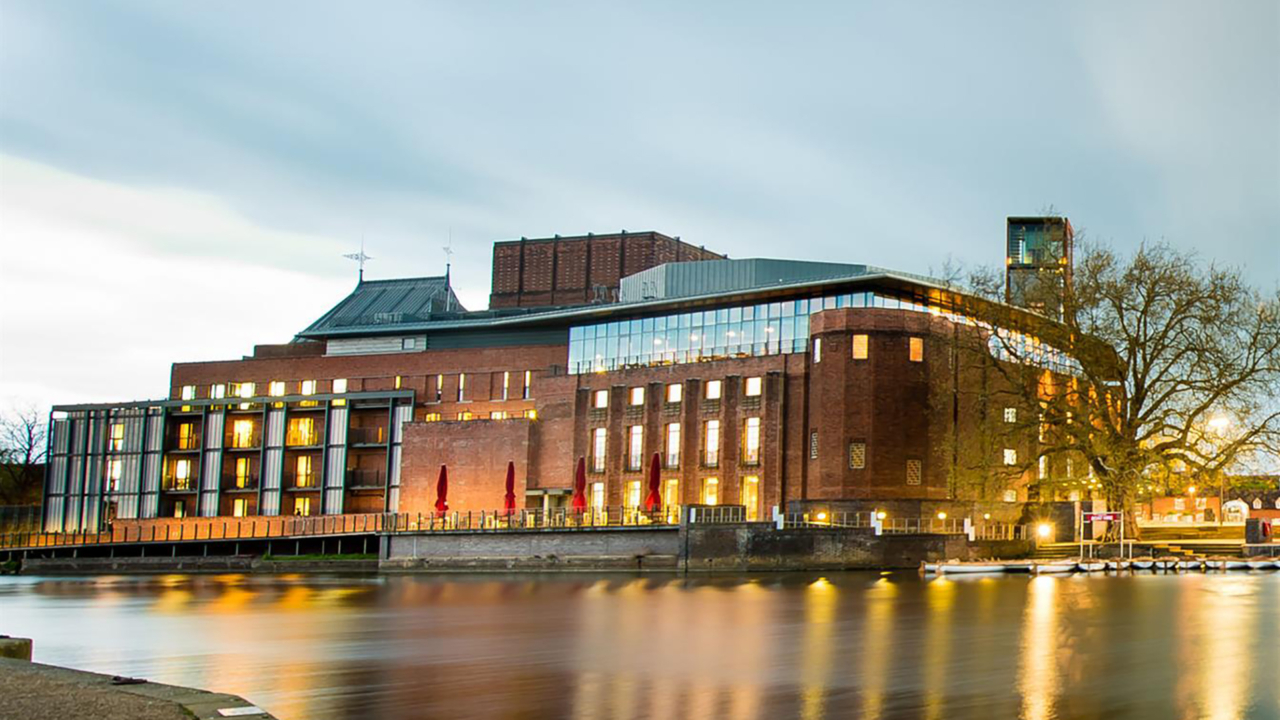- Posted on August 22nd, 2025
Story of Change: Royal Shakespeare Company

Royal Shakespeare Company’s Journey Toward Energy Efficiency and Carbon Reduction
The Royal Shakespeare Company (RSC), a prominent cultural institution with 14 commercial buildings and approximately 40 residential properties, has been working in recent years to address its sustainability goals, with an initial target of reducing carbon emissions by 2030. Facing a diverse estate and financial constraints, RSC has shifted its focus toward energy efficiency as a foundational step before pursuing renewable energy solutions.
This case study explores RSC’s journey, supported by a comprehensive building audit conducted by CPW and participation in a sustainability programme, highlighting its efforts, challenges, and strategic advancements in reducing energy use and carbon emissions.
Background
RSC’s estate spans a mix of commercial venues and residential properties, presenting unique challenges in achieving carbon reduction targets. Prior to engaging in the programme, RSC had been incrementally addressing sustainability but lacked a cohesive capital investment plan to tackle larger-scale issues. The Transforming Energy, Capital Investment Ready programme catalysed a more structured approach, enabling RSC to commission CPW to audit its properties and develop a prioritised strategy. This shift emphasised energy efficiency improvements over immediate renewable energy adoption, aligning with practical and financial realities.
Key Initiatives in Recent Years
RSC’s journey has been marked by a data-driven approach to energy efficiency and carbon reduction:
1. Comprehensive Building Audits
-
- In 2024, CPW audited all 14 commercial buildings and a sample of residential properties, focusing on energy efficiency as a precursor to renewable energy. The audits assessed building fabric (insulation, windows, etc.), lighting, and heating systems, providing a detailed roadmap for improvements.
- Key findings included the infeasibility of heat pumps at certain sites, such as Clapham, due to space constraints, prompting alternative planning.
2. Energy Efficiency Prioritisation
-
- The audits shifted RSC’s strategy from a rush to renewables to optimising existing systems. For instance, at Clapham, a boiler replacement was designed to be efficient yet adaptable for future district heating connections, balancing immediate needs with long-term potential.
- Lighting upgrades and building fabric enhancements were identified as high-priority, cost-effective measures with measurable energy savings.
3. Future-Proofing Measures
-
- RSC implemented systems to ensure flexibility, such as preparing the Clapham site for potential district heating. This forward-thinking approach ensures that short-term investments align with future decarbonisation opportunities.
4. Leadership and Governance
-
- While RSC lacks a board member dedicated to environmental issues, the appointment of an associate director with environmental responsibilities marks a step forward. This role, though focused more on creative aspects, has helped elevate sustainability within the organisation.
Challenges Faced
RSC’s sustainability efforts have encountered significant hurdles:
- Financial Constraints: The audits revealed substantial investment needs, with each site averaging 10 projects. Completing all within five years was deemed impractical, forcing RSC to reconsider its 2030 target.
- Site-Specific Limitations: Space constraints, as seen in Clapham, ruled out certain renewable options like heat pumps, requiring tailored solutions.
- Leadership Gaps: The absence of a board member with environmental oversight has slowed strategic commitment, despite advocacy for change.
- Scale and Complexity: Managing a diverse estate with varying lease terms and conditions complicated planning and prioritisation.
To address these, RSC leveraged the programme’s external perspective, using CPW’s evidence-based report to engage senior management and align efforts with realistic timelines and funding prospects.
Outcomes and Strategic Advancements
RSC’s recent efforts have laid a strong foundation for future progress:
- Reality Check and Revised Goals: The audits provided a sobering assessment, prompting RSC to adjust its 2030 target to a more feasible timeline based on financial and practical constraints.
- Data-Driven Decision-Making: The detailed plans and cost estimates for each site have empowered RSC to present a compelling case to funders and integrate findings into its estates master plan.
- Increased Internal Focus: Discussions with senior management have intensified, supported by solid data, elevating energy efficiency and carbon reduction on the organisational agenda.
- External Validation: CPW’s external expertise has bolstered internal planning and external communication, enhancing credibility with development teams and potential funders.
Future Plans
RSC is poised to build on its progress with the following steps:
- Review the CPW report in detail with senior management in an upcoming meeting to prioritise feasible projects.
- Explore funding options to support identified energy efficiency and carbon reduction initiatives, leveraging the report’s evidence.
- Integrate audit recommendations into the estates master plan, aligning sustainability with decisions about site retention and lease renewals.
- Continue engaging the associate director to drive environmental progress and maintain momentum.
- Sustain knowledge-sharing with cohort organisations to learn from peers and refine strategies.
Conclusion
The Royal Shakespeare Company’s recent journey to reduce energy and carbon emissions reflects a pragmatic shift toward energy efficiency as a stepping stone to broader sustainability goals. Over the past year, RSC has moved from incremental efforts to a structured, evidence-based approach, thanks to CPW’s audits and programme support. While financial and logistical challenges have tempered its 2030 ambitions, RSC has gained clarity, data, and optimism to secure funding and implement impactful projects. By embedding sustainability into its estates master plan and fostering leadership engagement, RSC is steadily advancing toward a greener future, balancing its cultural legacy with environmental responsibility.
